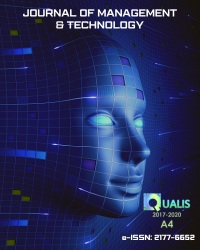Organizational aspects of the work of emergency departments
DOI:
https://doi.org/10.20397/2177-6652/2024.v24iSpecial.2866Palavras-chave:
organizational structure, emergency department, emergency care, optimization, healthcare managementResumo
Objective: This article focuses on analyzing the organizational aspects of emergency departments within the healthcare system. It aims to evaluate the structure, staffing, technical equipment, and quality management systems that are essential for efficient emergency care. The study also discusses the role of triage, primary diagnostics, and coordination with other healthcare services in emergency departments.
Methods: A comprehensive analysis was conducted, combining qualitative and quantitative research methods. Data were gathered from field studies, surveys, and interviews with medical and administrative personnel in emergency departments. Quantitative data were analyzed using statistical tools, while thematic analysis was employed for qualitative insights.
Results: The findings highlight the importance of an optimized organizational structure, proper staffing, and advanced technical equipment for the effective functioning of emergency departments. Key elements such as triage processes, patient care coordination, and the use of monitoring systems were identified as critical factors in improving service quality. Challenges such as staff shortages and outdated equipment were also noted.
Contribution: This study provides valuable recommendations for improving the management and operational efficiency of emergency departments. It emphasizes the importance of continuous staff training, updated technical equipment, and the implementation of advanced quality control systems to enhance patient outcomes.
Conclusion: Effective management of emergency departments requires an integrated approach involving proper organization, adequate resources, and continuous quality improvement. By addressing the challenges in staffing and equipment, healthcare providers can ensure better emergency care services and patient safety.
Referências
AlFlayyeh, S., & Albulayhid, A. (2023). An integrative framework of health care administration and its impact on patient behavior: An empirical investigation of private clinics in Riyadh, Saudi Arabia. Nexo Revista Cientifica, 36(04), 667-678. https://doi.org/10.5377/nexo.v36i04.16792
Bezymyanny, A. S., & Khalfin, R. A. (2015) Organization of emergency departments for the adult population of Moscow. Problemy standartizatsii v zdravookhranenii, (9-10), 29-32.
Deryuga, V., Laptun, V., Tatyanina, T., & Buyanova, I. (2022). Digital lifestyle and digital education. Revista Conrado, 18(87), 83-92.
Isaev, I., Zenin, S., & Rumyantseva, V. (2024). From techne to technocracy: The transformation of technology and its implications for state and society. Revista Conrado, 40(1), 428-436.
Kenzhin, Z. B., Tulegenova, A. U., Zolkin, A. L., Kosnikova, O. V., & Shichkin, I. A. (2021). Labour market under economy digitalization. E3S Web of Conferences, 311, 08007. https://doi.org/10.1051/e3sconf/202131108007
Kirillova, E. A., Zulfugarzade, T. E., Blinkov, O. E., Serova, O. A., & Mikhaylova, I. A. (2021). Prospects for developing the legal regulation of digital platforms. Jurídicas CUC, 18(1), 35-52. https://doi.org/10.17981/juridcuc.18.1.2022.02
Lasek, M., Chistalev, A. V., Yarukov, A. P., & Ustyugov, V. (2022). Development of medical equipment for functional therapy: Capabilities of a next-generation mechanotherapeutic simulator. Revista Gestão & Tecnologia, 22, 149-160.
Lyshchikova, J., Stryabkova, E., Vladyka, M., Kulik, A., & Bondareva, Y. (2023). Strategic management of smart specialization in regional economic development: Connection of export, sectoral, scientific, and technological competences. Nexo Revista Cientifica, 36(05), 180-192. https://doi.org/10.5377/nexo.v36i05.17307
Mukanova, D. A., & Kovylina, R. A. (2020). About the experience of creating a triage training area at the Department of Simulation Technologies of Semey Medical University. Journal of Health Development, 3(38), 65-69.
Nikolenko, T., & Semina, L. (2022). Development of innovative projects in the field of 5G technology: Methodology and assessment. Nexo Revista Cientifica, 35(04), 1048-1059. https://doi.org/10.5377/nexo.v35i04.15547
OSCEPA. (2015). The Helsinki Declaration and resolutions adopted by the OSCE Parliamentary Assembly at the twenty-fourth annual session. AS (15) D R. https://www.oscepa.org/en/documents/all-documents/annual-sessions/2015-helsinki/declaration-3/2979-2015-helsinki-declaration-rus/file
Pismennaia, A., Tochalnayа, A., & Anfinogentov, V. (2022). Improving a company’s competitiveness based on innovative transformations of intra-organizational interactions. Revista Gestão & Tecnologia, 22(2), 40-53.
Sapfirova, A. A., Adrianovskaya, T. L., & Agafonova, S. S. (2022). Fair wages as a factor for preserving workers’ health in the digital economy: Legal aspect. Russia, 35(4), 267.
Teplov, V. M., Polushin, Yu. S., Povzun, A. S., Afanasyev, A. A., Komedev, S. S., & Bagnenko, S. F. (2017). Inpatient emergency department and its role in optimizing the work of intensive care units of a multidisciplinary hospital. Bulletin of Anesthesiology and Reanimatology, 14(3), 5-9.
Trofimov, I., Artykhov, A., Gostilovich, A., & Chizho, S. (2022). Automation and digitalization of processes in the management of service organizations. Revista Gestão & Tecnologia, 22(4), 372-383.
World Health Organization (WHO). (2019). A72/A/CONF./1. Emergency care systems as a means to achieve universal health coverage: providing timely medical care to patients with acute illnesses and injuries. Draft resolution proposed by Argentina, Ecuador, Eswatini, Ethiopia, Israel, the European Union and its member States and the United States of America. https://apps.who.int/gb/ebwha/pdf_files/WHA72/A72_ACONF1-ru.pdf
Downloads
Publicado
Como Citar
Edição
Seção
Licença
Copyright (c) 2024 Revista Gestão & Tecnologia

Este trabalho está licenciado sob uma licença Creative Commons Attribution-NonCommercial 4.0 International License.
Os direitos, inclusive os de tradução, são reservados. É permitido citar parte de artigos sem autorização prévia desde que seja identificada a fonte. A reprodução total de artigos é proibida. Em caso de dúvidas, consulte o Editor.


